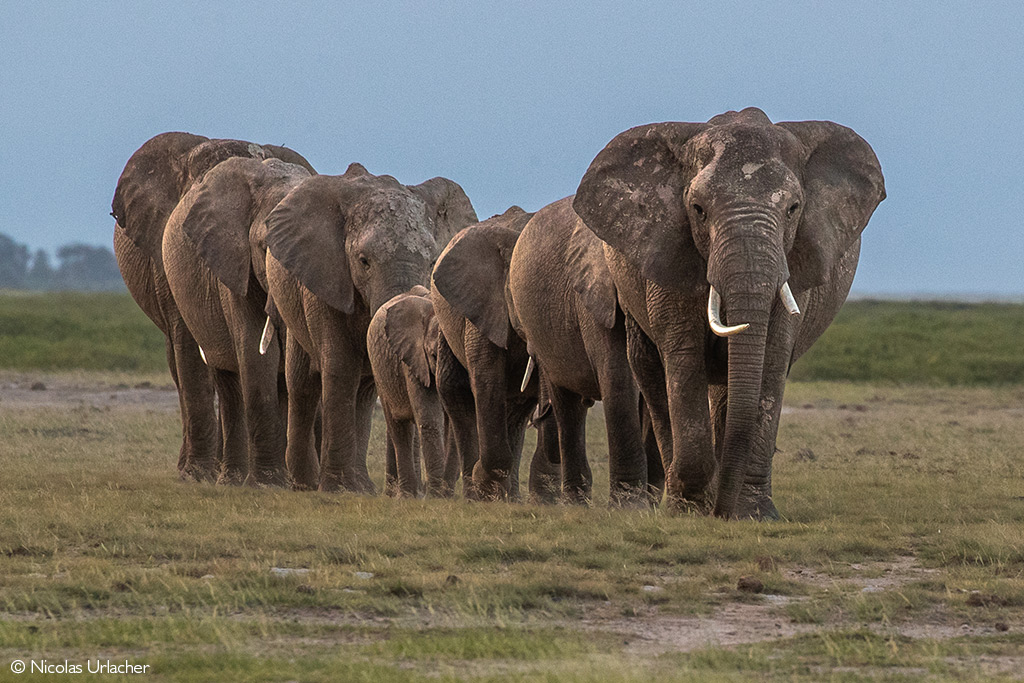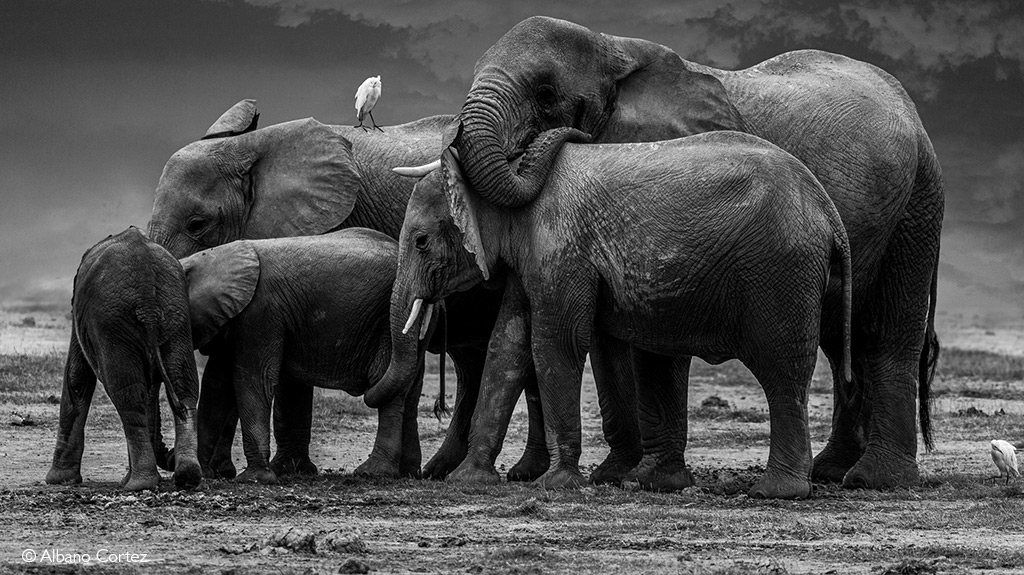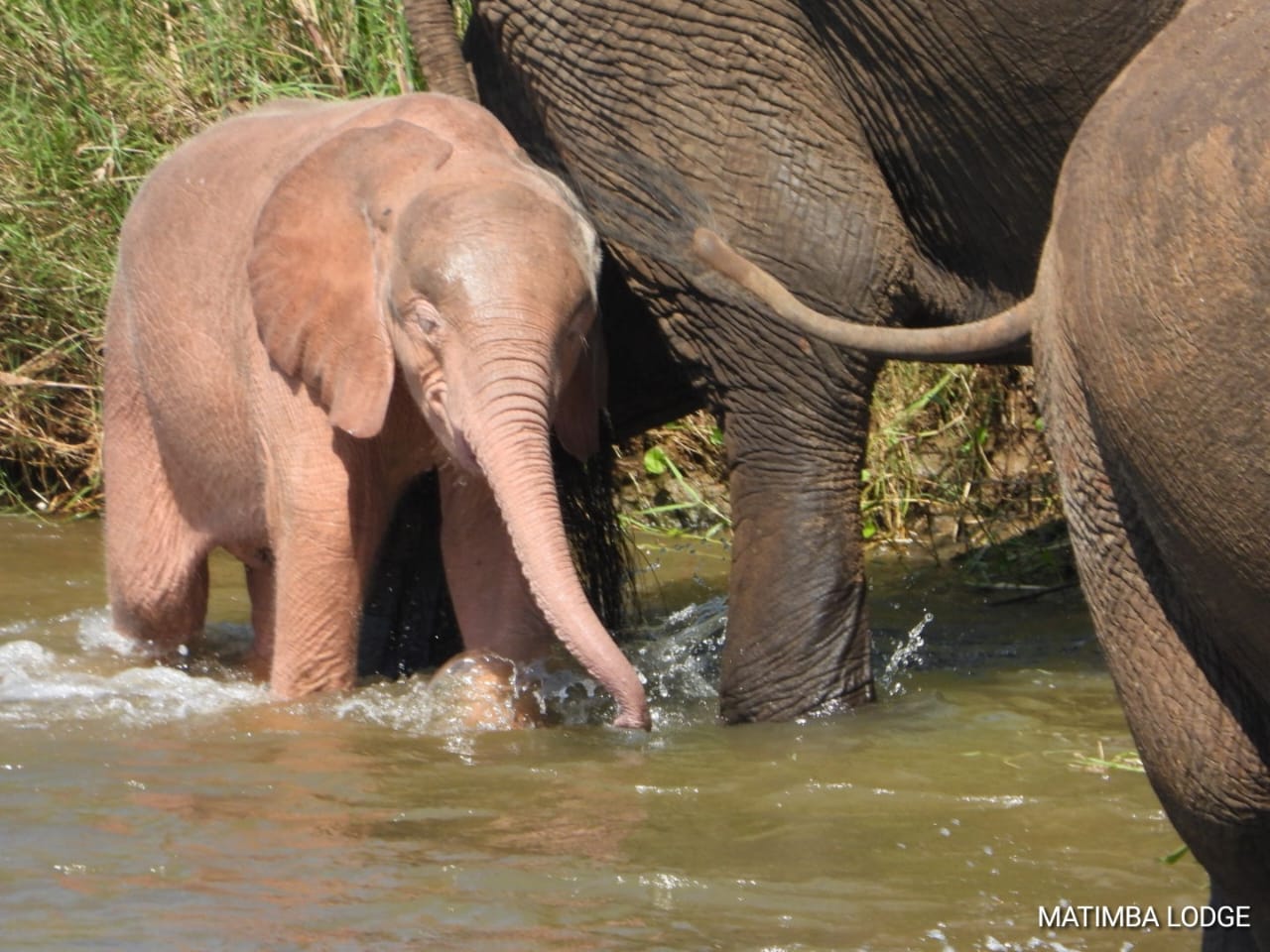Calling an elephant by its name
Posted on January 30, 2024 by Christy Bragg
 Do elephant rumblings contain names? New research may have the answer
How do you call an elephant? By its name. This might appear to be the start of a bad joke, but the fact that elephants might have individual names for each other is a first in the animal kingdom. Do elephant rumblings contain names? New research has shown that it is possible that elephants have individual names, and they get one another’s attention by using these names.
Do elephant rumblings contain names? New research may have the answer
How do you call an elephant? By its name. This might appear to be the start of a bad joke, but the fact that elephants might have individual names for each other is a first in the animal kingdom. Do elephant rumblings contain names? New research has shown that it is possible that elephants have individual names, and they get one another’s attention by using these names.
__________________________________________________________________________________________________________________________
Elephant name-calling
The nearest similar behaviour in animals has been observed in dolphins mimicking the particular calls of an individual whose attention they want to attract. Dolphins have their own unique set of squeaks and whistles, which self-identifies them to the group, but what is different about Bottlenose dolphins (Tursiops truncatus) is that when a dolphin wants to communicate with another dolphin, it mimics or copies that individual’s unique call signature.
Despite this being a fairly unique behaviour amongst wild animals, it is still cognitively simple to communicate to an individual by imitating that individual’s signature call. One step further is what humans do – attaching a non-mimicking, essentially arbitrary vocal label (aka “name”) to an individual. (My name, “Christy”, does not reference the sounds I make). This type of vocal recognition requires a new level of cognitive processing to connect a general sound “label” to one individual. It requires verbal learning (as individuals are not born knowing the names of their peers), memory, and assigning a symbolic meaning to individuals.
How to communicate with an elephant
A recent study (which is yet to be reviewed) included some intriguing experiments to find out more about how elephants communicate with each other.
Firstly, we know that elephants are great communicators – they can mimic sounds and have a wide variety of low-frequency rumblings. Many travellers will have experienced these rumblings while on an African safari. For example, they have a “Contact Rumble” when the caller is far away, is visually separated from the herd, and wants to get in touch again. They also have a “Greeting Rumble”, for when they haven’t seen each other for ages and they meet up again.
 Elephants communicate using various techniques, including rumbling
Elephants communicate using various techniques, including rumbling
Researchers for this study, published on bioRxiv, recorded and analysed the calls and rumblings of elephant groups from the greater Samburu ecosystem in northern Kenya and the Amboseli National Park in southern Kenya. They observed the elephants’ interactions, noting calls and when a response was initiated by a call (through vocalising or approaching a caller). They then analysed the calls to see if vocal labels were uniquely associated with an individual and if different callers used the same vocal label (name) when addressing that individual.
The results showed receivers of calls could be correctly identified from the call structure of other elephants and that there was a commonly used acoustic signal – like a label or name – in the calls to that individual. There were, however, varying sounds and rumblings in these calls, suggesting multiple messages encoded in these rumblings. The scientists suggest that results may be blurred by the fact that rumblings are not as simple as, “Hey you, Ellie, get over here!” but probably contain more information, such as in, “Hey Ellie, you want to join us? We’re thirsty, and we’re off to the waterhole while Mom isn’t looking.”
The fascinating result, however, occurred when the researchers played back recorded calls of specific herds back to these same herds in the field. They tested these vocal labels (names) in the field and compared the reactions of 17 wild elephants to the playback of calls. When the elephant heard its name in a call, it approached the recorder more quickly and vocalised more quickly than to calls without its name.
Final thoughts
So, it’s not quite a cut-and-dried case of elephants definitively having names, but there is some evidence to support the vocal identification of individuals. Why would elephants want to call each other? Elephants are social creatures, and their groups tend to split and re-connect frequently. As humans tend to respond positively when their name is used in an instruction, so too might elephants.
Reference
Pardo, M. et al. (2023). African elephants address one another with individually specific calls. doi:
https://doi.org/10.1101/2023.08.25.554872 or
https://www.biorxiv.org/content/10.1101 ... 5.554872v1


